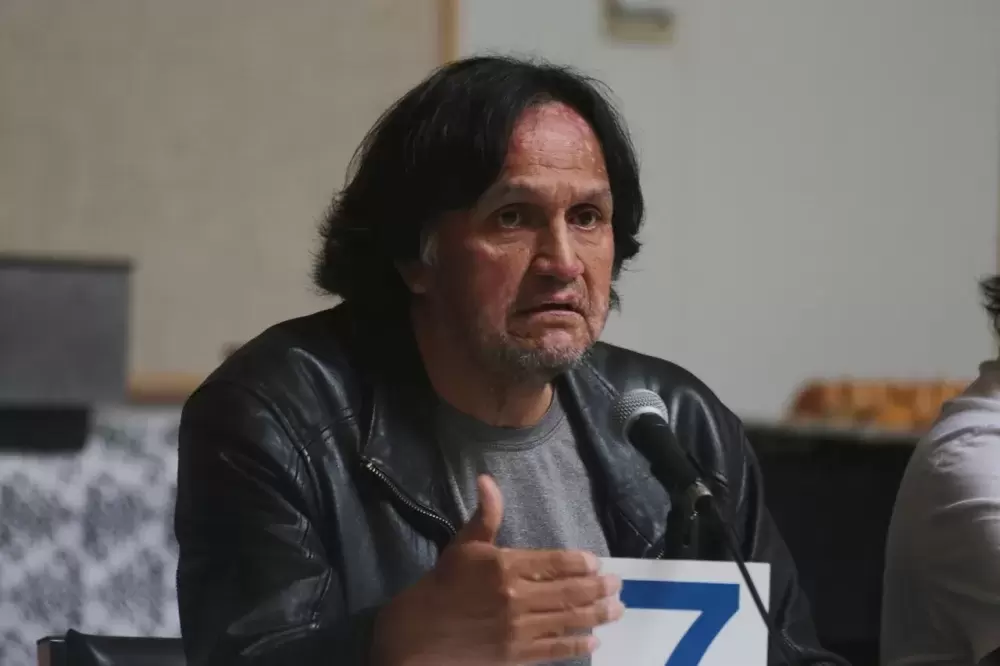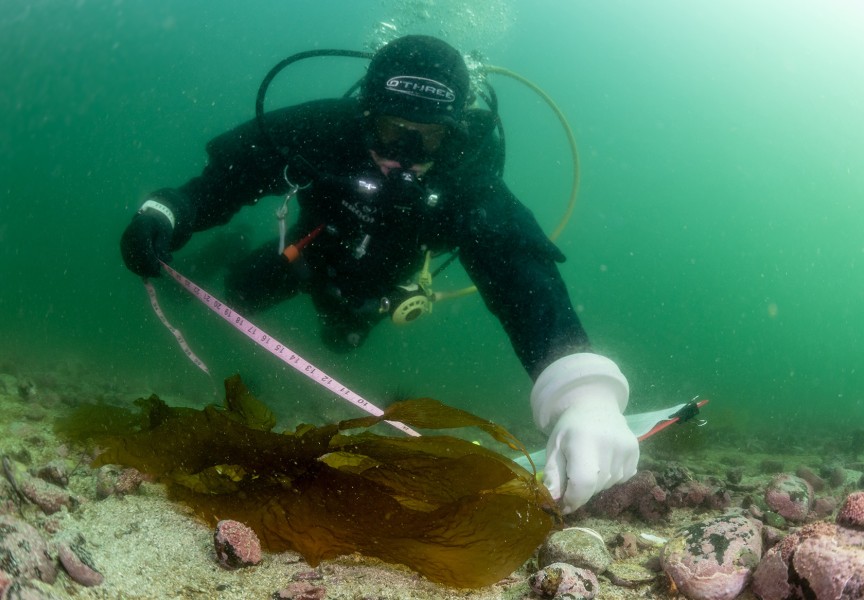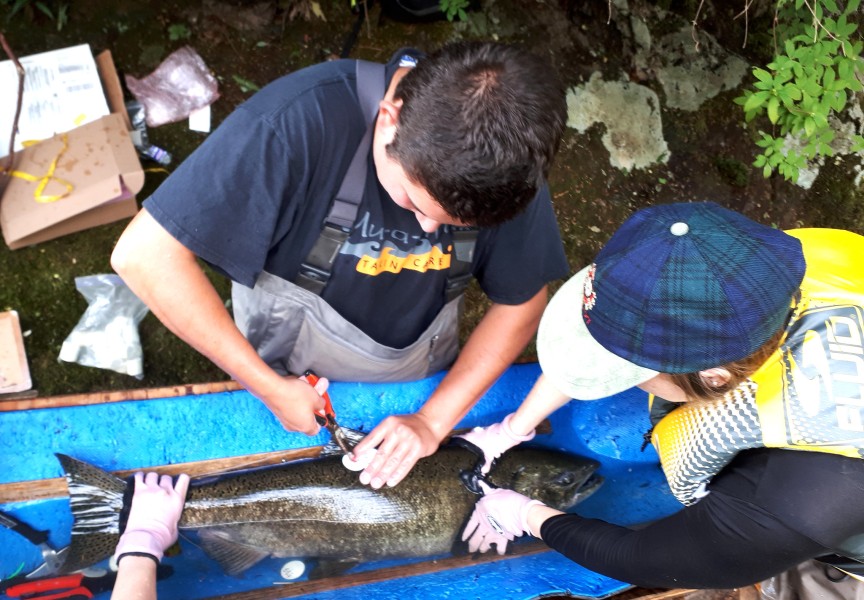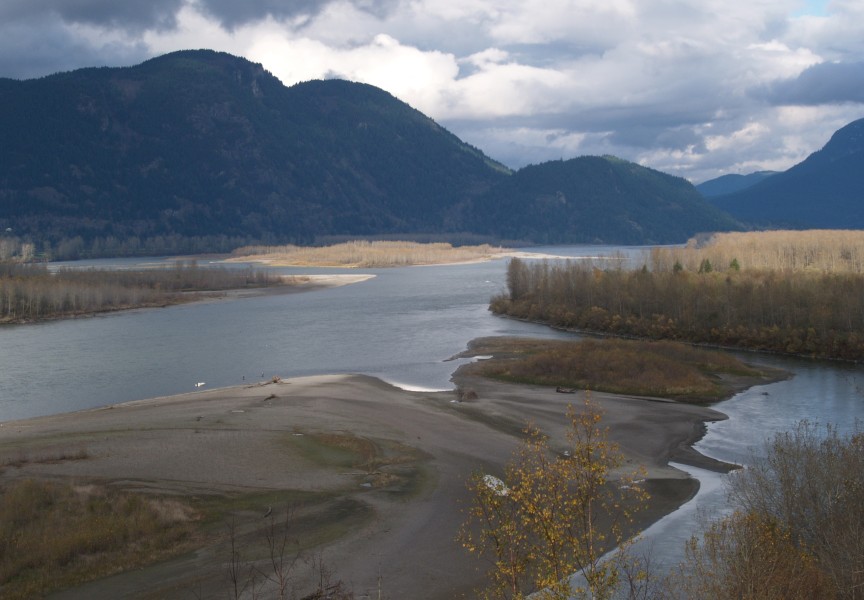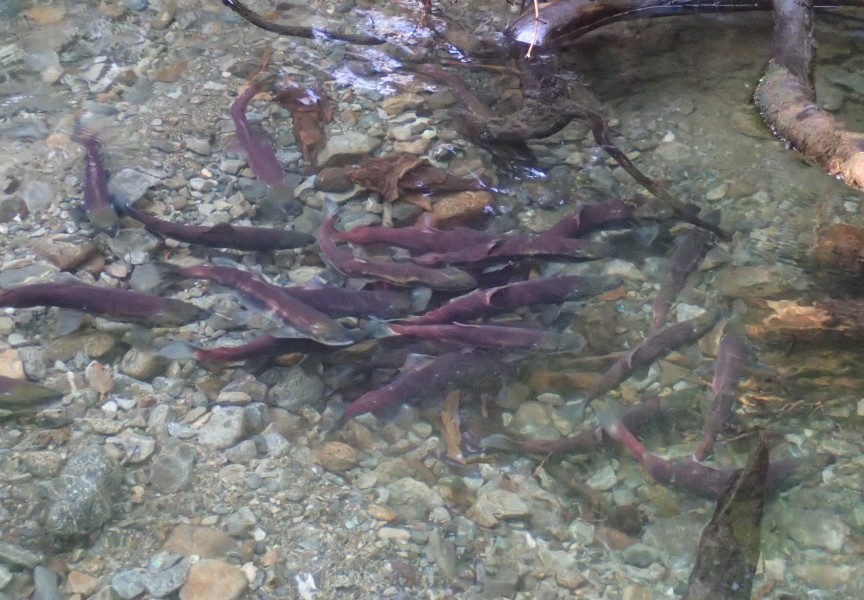Citing the protection of territorial resources and jobs in coastal communities, Nuu-chah-nulth nations have voted to push for the banning of large, offshore foreign-owned fish processing vessels.
During the Council of Ha’wiih Forum on Fisheries in October, delegates supported a resolution put forth by the Ehattesaht/Chinehkint First Nation.
“There are big processing boats that are off the west coast of Vancouver Island right now, and they are ultimately taking work away from First Nations communities as we speak,” said Ehattesaht/Chinehkint member Lyle Billy during the meeting on Oct. 24. “Ehattesaht wishes the future generations of those that share the ha’wiih hahoulthee to be sustainable on the coast.”
In a move to improve the First Nation’s capacity to benefit from its ocean resources, Ehattesaht bought a Mid Island Ice and Packing facility in Zeballos in May, an operation that employs seven to 10 band members seasonally. But this year competition came to the First Nation’s waters.
“A large foreign-owned vessel arrived in our territory and our employees were sent home while the processor filled up, processed the fish with foreign workers and took it away to a foreign company,” said Billy. “In 2018 the Canadian government has allowed Canadian investors to come in and bring in two more giant processors that will impact our communities.”
The Council of Ha’wiih is now “urgently” requesting that both the minister of Fisheries and Oceans Canada as well as B.C.’s minister of agriculture support a two-year moratorium onany new or renewed licences for large, foreign-owned fish-processing vessels. The council wants this moratorium in place “until Nuu-chah-nulth First Nations are consulted and accommodated and have given free prior and informed consent,” according to the resolution.
“Each nation should not stand alone,” said Billy. “I think we should all work together and this is for the protection of your ha’wiih hahoulthee and the resources within.”
Since late 2014, trawlers measuring more than 130 metres have been banned from Australian waters, but no such limit exists in Canada. The largest of these super trawlers carry the capacity to process as much as 250 tonnes of fish a day.
Before the resolution was passed Nuu-chah-nulth delegates noted concern over the large vessels being owned by foreign operators. Toquaht member Larry Johnson expressed interest in the nations exploring the practice as an economic opportunity.
“I would like to know a little about the cost of those boats, how many people it employs,” he said. “If other countries are looking to our offshore areas for food and their food security, we should be in charge of that stuff. Maybe we should have one our own Nuu-cah-nulth boats out there with Nuu-chah-nulth people processing.”
“I think it’s important that we focus on the foreign-owned vessels, because there are some Canadian-owned vessels that we have Tseshaht members work on in Port Alberni that do offshore processing,” said Tseshaht fisheries manager Andy Olsen. “We don’t want to restrict their opportunity.”
Olsen compared the super trawlers to how foreign real estate investment has affected housing affordability in Canada.
“It’s just like the real estate market in that they can get their money out of the country and have a piece of paper or asset that they can use for trade or investment. We don’t have that,” he said. “That’s a huge amount of access that’s going to foreign ownership that we’ll never see a piece of.”

